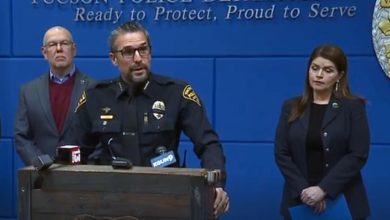Record labels sue AI song generators Suno and Udio for copyright infringement


Entertainment
One case was filed in federal court in Boston against Suno AI and the other in New York against Uncharted Labs, the developer of Udio AI.
Mariah Carey arrives at the third annual Recording Academy Honors presented by The Black Music Collective in Los Angeles on February 1, 2024. AP Photo/Damian Dovarganes, file
BOSTON (AP) — Major record labels are suing artificial intelligence song generators Suno and Udio for copyright infringement, alleging that the AI music startups exploit the recorded works of artists from Chuck Berry to Mariah Carey.
The Recording Industry Association of America announced lawsuits filed by labels including Sony Music Entertainment, Universal Music Group and Warner Records on Monday.
One case was filed in federal court in Boston against Suno AI and the other in New York against Uncharted Labs, the developer of Udio AI.
Mikey Shulman, CEO of Suno AI, said in an emailed statement that the technology is “designed to generate completely new results, not to memorize and regurgitate pre-existing content” and does not allow users to reference artists. specific.
Shulman said his Cambridge, Mass.-based startup tried to explain this to labels “but instead of engaging in a good-faith discussion, they reverted to their old lawyer-led playbook.”
Udio did not immediately respond to requests for comment.
RIAA Chairman and CEO Mitch Glazier said in a written statement that the music industry is already collaborating with responsible AI developers, but said that “unlicensed services like Suno and Udio that claim that it is “right” to copy an artist’s life’s work and exploit it for their own benefit. profit without consent or compensation sets back the promise of truly innovative AI for us all.
AI is a hot topic of conversation in the music industry, with debates ranging from the creative possibilities of the new technology to concerns over its legality. In March, Tennessee became the first U.S. state to pass legislation aimed at protecting songwriters, performers and other music industry professionals from the potential dangers of artificial intelligence. Supporters said the goal was to ensure that AI tools could not reproduce an artist’s voice without their consent.
The following month, more than 200 artists signed an open letter submitted by the nonprofit Artist Rights Alliance calling on artificial intelligence technology companies, developers, platforms, services and platforms to stop using AI to undermine and devalue the rights of human artists. .
Additional news alerts
Get the latest updates as they happen.
Boston





